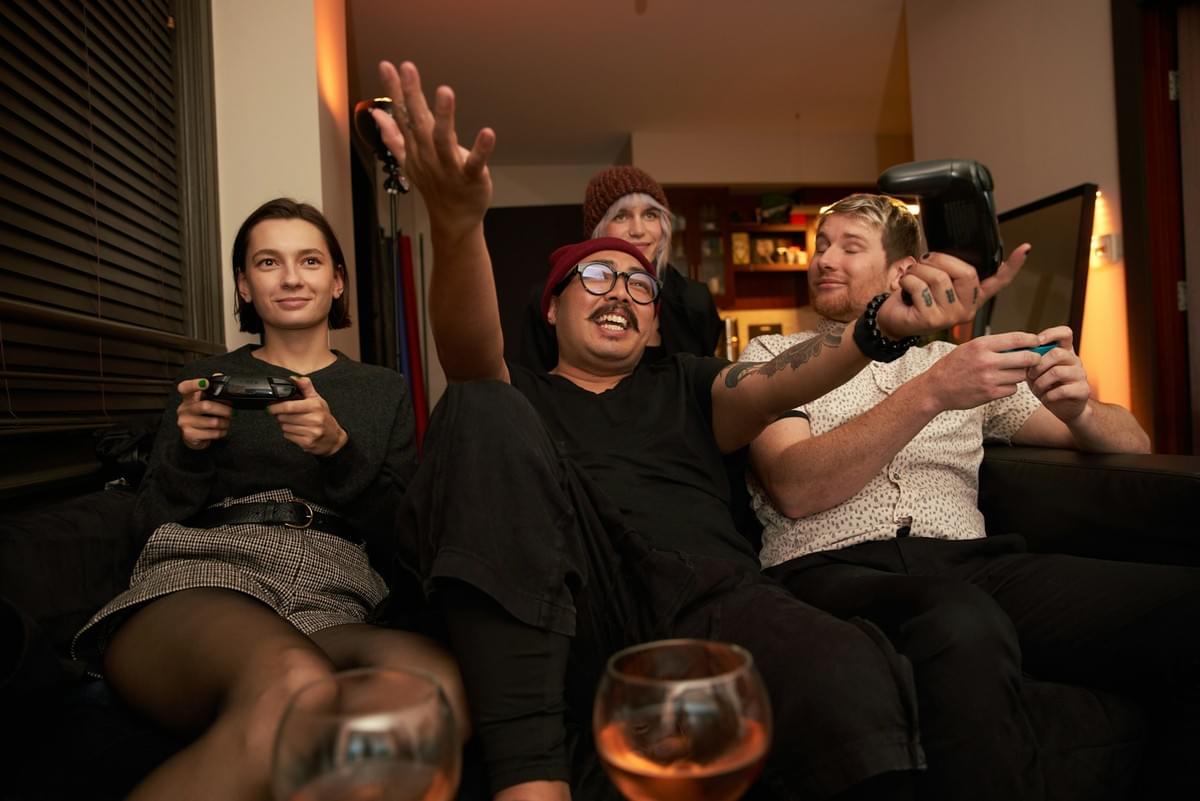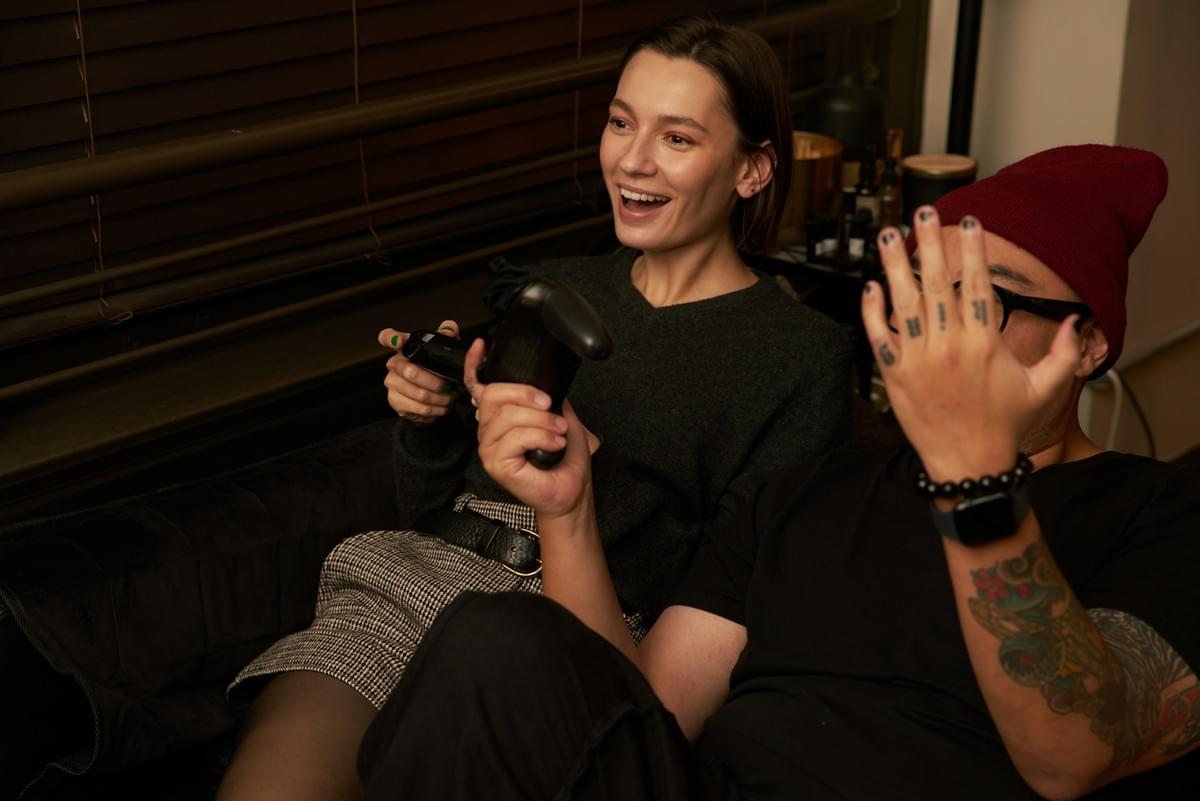When Good Writers Don't Get Hired
Here’s a story I wish wasn’t true:
Sarah had everything going for her. Fresh out of an MFA program with brilliant writing samples, she'd just landed a narrative internship at a game studio. Her dialogue sparkled. Her characters jumped off the page.
Three weeks later, she was let go.
The official reason? "Not a good cultural fit."
Here are the reasons they let her go: When the lead designer said they needed to cut 40% of the dialogue for memory constraints, Sarah spent fifteen minutes explaining her story ideas, instead of thinking about the other person’s problem. When the art director mentioned that the protagonist's backstory conflicted with the visual design, she suggested they change the art. When asked how her branching dialogue would work with the quest system, she admitted she "hadn't really thought about that part."
Sarah’s not the only writer to be surprised by a decision like this. Everybody agreed her writing was fantastic! That wasn't the issue. And honestly? Stories like this kill me.
The Industry Shifted While We Weren't Looking
It has been a completely insane time for game developers.
The game industry just went through what Amir Satvat calls the loss of "100,000 years of experience"—that's how much institutional knowledge walked out the door during the massive layoffs of the past 2.5 years. An estimated 35,000 jobs were lost from 2022 to May 2025, and many of those were senior roles.
The exact people who used to mentor junior writers.
There are signs things are getting better: Amir said in a new post that he believes we have reached breakeven between hiring and layoffs in games in January 2025.
But because of these layoffs and budget cuts, most studios just don’t have the time, resources, or larger teams to teach professional skills on the job.
And yet they’d like you to somehow magically arrive with all the inside-baseball knowledge that got passed down, senior to junior, through these informal apprenticeships and on-the-job training.
It's been tough. 100%. But it won't be tough forever (I swear it. This industry is cyclical. Good times have always followed bad.)
And this is still an incredible career. There is nothing like telling stories for a living.

If you want this career—if you really want it— stack the deck in your favor. Now’s the time.
Too many writers are heads down just trying to "work even harder" and expecting to be recognized. But that's not the answer.
You don’t need to try harder; you need different skills.
The writers getting hired aren't necessarily the most creative ones (yes, creativity is magic; it’s also table stakes.) The ones who are thriving are the ones who’ve learned how to be collaborative game-dev pros who happen to write.
What Studios Actually Look For (Before They Even Read Your Samples)
I was talking with a narrative director at a AAA studio recently, and she told me something that stuck: "We spend more time in interviews asking about how they collaborate and how they do their owrk than we do discussing writing samples. The samples tell us if they can write for us. The conversation tells us if they can work with us."
Her studios looks for writers who can explain their story ideas in player-friendly terms. Writers who get that iteration is about making scripts better - not watering scripts down to make the programmers happy. Writers who see constraints as puzzles to solve, not problems to resent.
"Writing chops don’t matter if the person can’t put the player experience ahead of their story,” she said. “It’s what all the other people at the studio have to do - not just the writers. Everybody is laser focused on the player and we need our narrative people to be that way, too. We need people who think like developers, not just like writers."
The Gap This Created (And Why It's Not Your Fault)
Five years ago, bigger studios had narrative teams of 8-12 writers. Junior writers learned by watching—sitting in daily standups, finding out how story ideas had to change based on technical limits, and watching senior writers navigate tricky feedback from other departments.
This apprenticeship system delivered an "invisible curriculum.” It’s how writers learned how to present story ideas with the engine in mind. When to push for your ideas versus when to adapt. How to translate “I have a great idea” into “here’s how we could get it in the game.” The art of collaborative problem-solving.
It was basically a professional finishing school that happened naturally.
Then the industry shrank. Studios got leaner. Teams got smaller. Most narrative teams now have 1-2 writers maximum. Remote work eliminated much of the mentoring relationships that developed through time in the break room and casual conversations between meetings.
And here's the stupid part: The professional expectations didn't change, but the training pipeline disappeared.
Studios still expect writers to have professional apprenticeship knowledge. They just stopped providing the apprenticeship.
So now we have a generation of talented writers who can create compelling characters and killer plots, but who struggle with the collaborative, iterative reality of game development. They know how to write, but they don't know how to be professional game writers.
This isn't a talent problem. It's a professional development problem. And that means it's solvable.
The Good News: These Skills Are Learnable
Professional skills can be learned and practiced just like creative skills. You don't have to hope for fairy godmother to make your dreams come true. You can develop these skills by deciding you’re going to find a way to develop them. (I’m going to give you multiple, specific ways for developing every skill on this list.)
Game writers are taking matters into their own hands. They're taking classes, they're meeting as many working game devs as they can, and they're getting involved in places like Discord and local IGDA chapters.
Here’s a list of five skills that you want to develop so that when game studios look at you, they’ll say “Dammmmn, that one’s a pro.”
Professional Skill #1: Talking The Talk
Speaking the Language of Constraints
In game development, nothing is finished until the game ships. (Don’t believe me? I once came in AFTER CONTENT LOCK to rewrite a story.) Screenwriters might finish a script, hand it off, and call it done. But game writers are constantly tweaking their material, for all kinds of non-narrative reasons - design changes, technical problems, and feedback from testers.
Professional game writers learn to talk about their work in terms of how it affects other departments.
Version A: “This character shows how vulnerable this character is” - that’s nice, but that comment is only about the story - which, to other game devs, is translation for “something we could cut later.”
Version B: “This conversation shows what is motivating the character, and it gives the player plenty of agency here.” Did somebody say the words “player” and “agency”? I guarantee the designer in the room is going to sit up and pay attention to what you’re saying, when you say it like that.
There’s an art to pitching ideas that get the whole team on board. It’s an art you can learn.
How can you get better at this?
- Google basic game development terminology (iteration, milestone, pipeline, vertical slice - you could write a whole dictionary on industry jargon)
- Join game dev Discords - and listen to conversations that take place between pros
- Play games analytically—ask yourself why narrative moments work or don't work for you, as a player (not a writer)

Professional Skill #2: Caring About Other People's Problems
Understanding How Your Writing Affects Everyone Else
Empathy is a superpower for most writers: it’s how you are able to create characters that make your audience cry.
Train that superpower on other game developers!
As great as your work may be, it won’t work if it doesn’t work for the other departments. For example: our beautiful, tragic character backstory might conflict with the neon-bright art style. Your tender, emotional scene might happen right in the middle of a firefight. Your branching conversation might make the programmers cry (and not because your writing is so great).
Professional game writers understand that narrative isn't just about story—it's about how story integrates with design, art, programming, and audio to create a unified player experience.
How can you develop this skill?
- Learn the basics of other disciplines (even just YouTube tutorials help)
- Volunteer for game jams to work with multidisciplinary teams - and really pay attention to the problems THEY are trying to solve
- Follow designers, animators, programmers on social media - what do they talk about all day?

Professional Skill #3: Managing Yourself
Working Within Iterative Development
Lots of early-career writers get upset when some of their hard work gets thrown in the trash. They seethe - or worse, they feel like it’s a sign they’re not very good at their job.
But guess what? EVERYBODY on a team gets some of their work thrown out - not because it’s bad, but because the game has changed. Every game dev can point to a folder on their desktop called “Next Time.” It’s where they put the lost animations, the cut levels, the perfect code that they are so proud of - and that just isn’t right for the current project.
Professional game writers understand milestone-driven schedules. They know how to prioritize under pressure. They adapt when priorities shift (and they will shift - it’s not a question of If, but When).
How to develop this skill:
- Learn about agile development and scrum methodology, at least the basics before you slip into a coma
- Start tracking how long it takes you to finish your creative work! Seriously. Use a timer like toggl.com. Track your info. Producers LOVE writers who can accurately scope themselves. (Don’t be that writer who tells a producer “that will only take me twenty minutes” when you secretly suspect it will take you four days. Be honest. Learn to underpromise and overdeliver.
- Use project management tools (Trello, Asana, Notion) for your own projects

Professional Skill #4: Being A Giver, Not A Taker
Building Relationships That Lead to Opportunities
This isn't about collecting business cards or sending cold LinkedIn messages. That is extremely blah. This is about building genuine relationships with people who understand this industry and can help you navigate it.
The hidden reality: Most game writing positions are filled through relationships and referrals, never public job postings. Studios prefer to hire people they either know personally or who come recommended.
Help people get to know you. Help THEM in any way you can (with no expectation of anything in return). Be kind. Be thoughtful. Be generous. When somebody helps you, thank them.
How to develop this skill:
- Join game writing communities (not just general writing groups) and look for ways you can show up - if somebody asks for feedback on their work or their portfolio, volunteer
- Attend industry events (GDC, PAX Dev, local game dev meetups) - and volunteer (if you want to attend GDC for free, become a Conference Associate! I hear it’s really fun.)
- Stop lurking on social media - start liking and commenting and encouraging others, instead
- Help other people before asking for help yourself - this is a big one; you don’t want to get a reputation as the person who only shows up when they need something

Professional Skill #5: Dealing With Other People
Reading the Unwritten Rules
Every studio has its own culture, communication style, and decision-making process. Professional game writers can quickly read a room, adapt their communication style, and understand the hierarchy without explicit instruction.
As game designer Will Shen once said, “All problems are people problems - and people problems can’t be solved; they can only be managed.” Wise words.
How to develop this skill:
- Study different studio cultures (dev blogs and interviews are great windows into studios - what do you imagine it’s like to work there? Is everybody stressed and angry, or chill and happy? Watch that body languag!)
- Learn to give and receive feedback professionally - nobody is born enjoying constructive criticism, but through practice and exposure, you can develop a thicker skin
- Understand the difference between indie, AA, and AAA studio cultures, to get a sense of which culture might be the best fit for you

Ready to Bridge the Gap?
The most successful game writers don't develop these skills all by themselves. (I’m sure you noticed that most of these skills involve other people…). When these writers and narrative designers want to grow, they look for structured professional development that can become their own professional apprenticeship.
Whether you're starting fresh, transitioning from another writing field, or advancing within the game industry, these professional skills (that have nothing to do with writing) put you in the fast lane. They're the difference between talented writers who stay unemployed and professional writers who build sustainable careers.
The traditional apprenticeship system may have disappeared, but structured professional development can fill that gap. You don't have to learn all this the hard way.
Remember Sarah from the beginning? Her story has a happy ending. She took a step back, developed these professional skills deliberately, and landed a full-time narrative role six months later. The difference? She learned to be a collaborative game dev who writes, not just a writer working in games.
You can do this too.
Build your writing chops, your game-writing expertise, and your creative community -- all at once
Join the waitlist for The Narrative Department's Game Writing Masterclass and get early access when enrollment opens in 2026. You'll learn what makes a great game writer now, how to break into the hidden job market, and get the structure and support that will help you make it happen.
Susan’s first job as a game writer was for “a slumber party game - for girls!” She has gone on to work on over 25 projects, including award-winning titles in the BioShock, Far Cry, and Tomb Raider franchises. Titles in her portfolio have sold over 30 million copies and generated more than $500 million in revenue. She founded the Game Narrative Summit at GDC. Now, she partners with studios, publishers, and writers to help teams ship great games with great stories. She is dedicated to supporting creatives in the games industry so that they can do their best work.

